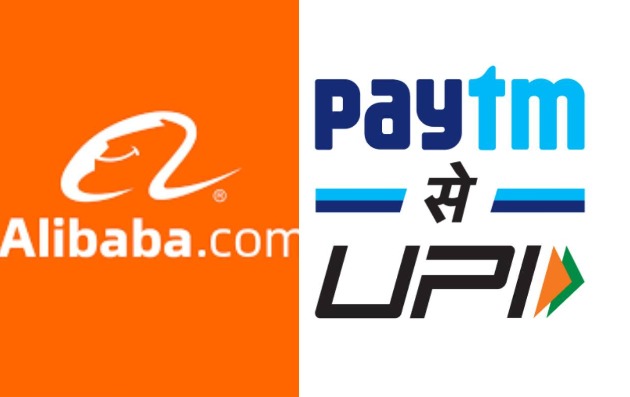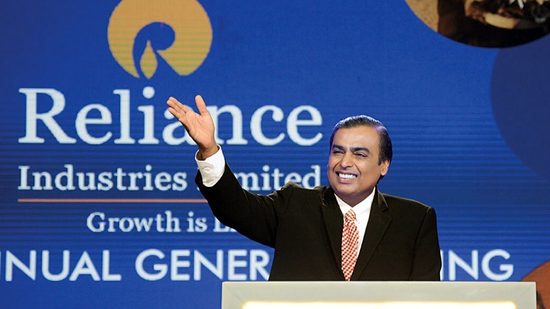
According to a report, China’s Alibaba Group, one of Paytm’s early backers, is thought to have sold a 3.4% stake in the fintech company today to reduce its ownership to zero.
One97 Communications, the parent company of Paytm, traded 3.4% of its equity, or 2.1 crore shares, in a block sale today in which Chinese giant Alibaba sold all of its shares. As a result of the block deal, the stock dropped 9%, reaching a day low of Rs 646.
At the end of the December quarter, Alibaba owned 6.26% of Paytm, and in January, it sold around 3% of its ownership on the open market.
According to the article, because Alibaba had already sold its holdings in Zomato and BigBasket, this most recent deal almost completes its exit from India.
Alibaba has been selling shares in publicly traded new-age technology companies in India as the value of its investments has been rapidly declining. Earlier in November, the Chinese multinational sold a 3% stake in online meal delivery aggregator Zomato.
Paytm’s recent surge after it revealed operating profitability for the December quarter was cut short by today’s block deal by Alibaba.
The new-age company’s third-quarter net loss decreased from Rs 779 crore to Rs 392 crore. Paytm CEO Vijay Shekhar Sharma said last week, following the release of the quarterly results, “With our focus on growth and keeping a tight vigil on operational risk and compliances, I am very confident that we will soon achieve our next milestone of becoming a free cash flow generating company.”
Shares of Paytm, which last month announced a share buyback scheme worth Rs 850 crore, have already fallen by over 70% from their IPO issue price of Rs 2,150. But the stock has increased by about 19% over the previous five days.
According to Trendlyne data, Paytm currently has eight buy recommendations out of the 11 analysts who follow the stock, with an average target price of Rs 915, indicating an upside potential of more than 34%.
Even Macquarie, notorious for its pessimistic assessments of Paytm’s future, was won over by the quarterly financial report card. The stock received a double upgrade from the international brokerage house, and its target price was increased by 80% to Rs 800.
“When the stock is priced at roughly Rs. 600, our opinion is different from our opinion at Rs. 2,150.” “Paytm has pleasantly surprised on the distribution of financial services income by a significant margin since our last target price decrease and has also been able to control overall expenses and charges,” Suresh Ganapathy and Param Subramanian, analysts at Macquarie, stated.
A price estimate of Rs 1,150 was set by Goldman Sachs, Rs 1,061 by Citi, and Rs 730 by BofA Securities, among other international brokerages.
Paytm reported in its monthly business update that its average monthly active users during the month increased 29% year on year to 89 million in its monthly business update. With 6.1 million businesses now paying a subscription for payment devices, an increase of 0.3 million in January 2023, it added, “We continue to enhance our leadership in offline payments.”
After positive Q3 FY23 results last Friday, Paytm share price rallied over 23% in four consecutive sessions
After the business released encouraging Q3 FY23 numbers last Friday, Paytm shares increased by more than 23% in four straight sessions this week. Additionally, it stated that during the quarter, EBITDA was positive after deducting ESOP costs.
Paytm share price also disclosed a more than 41% year-over-year (YoY) growth in operational revenue to INR 2,062 crore in the December quarter and a roughly 50% YoY drop in net loss to INR 392.1 crore in addition to the much awaited commentary on profitability.
Paytm also reported that it disbursed 3.9 million loans for INR 3,928 Cr in January this year, which was a 103% and 327% increase from the same month last year, in its operating performance report published earlier this week.
According to the company, the expansion was driven by rising subscription revenues from merchants, increased loan distribution, and a booming online retail industry. The timing of the holiday season and the UPI incentive recorded in Q3 FY 2022 (for three quarters) vs. $0 recorded in this quarter had an impact on the YoY growth comparison.
I’m excited to announce that our business hit this significant milestone of EBITDA before ESOP cost profitability in the December 2022 quarter itself. This is three quarters earlier than we anticipated. Vijay Shekhar Sharma, the business’s founder and CEO, said in a statement, “With our emphasis on growth and strict vigilance on operational risk and compliances, I am quite sure that we will soon accomplish our next milestone of becoming a free cash flow generating company.”
In the meantime, the company’s loan volume increased 137% from the prior quarter to 10.5 million, and as of December 2022, 8.1 million borrowers had used Paytm’s platform to obtain loans, with 1.4 million more signing up throughout the quarter. Average Monthly Transacting Users (MTU) increased by 32% year over year to 85 million during the third quarter. This growth was driven by client acquisition.
Paytm share price increased again as a result of higher Q3 results. However, the stock’s underlying fundamentals are still weak, and to restore market confidence, a string of better results will be required in the future. The stock may once more reach the levels of 520 to 500 in the near future, according to the dismal view, according to Share India Vice President and Head of Research Ravi Singh.
“As you can see, the results are good, but before making any decisions, you should wait to see the outcomes for at least another two to three quarters.” “We advise against buying the stock since it is weak technically,” said GCL Broking CEO Ravi Singhal.
Paytm share price, Numerous brokerages have also become more optimistic about Paytm stocks as a result of the good fundamentals. Paytm’s rating was doubled by Macquarie, from “underperform” to “outperform,” noting that the startup has “positively surprised” in a significant way regarding the allocation of financial services revenue.
Paytm share price, At least four brokerages—Macquarie, Goldman Sachs, Citigroup, and CLSA—have raised their price targets for the firm, and the majority of them are confident that its EBITDA will continue to be positive and even get better in the ensuing quarters.
With a decline of more than 60%, Paytm was one of the worst-hit new-age tech stocks in 2022. Currently, the majority of analysts are bullish on the stock as a result of the firm exceeding its EBITDA profitability goal.
However, as previously stated by a number of market analysts, share unloading by large investors through block trades is anticipated to continue and will continue to work against Paytm’s price in the short run.
At 3:05 PM IST, shares of Paytm were down over 8% at INR 653.6 on the BSE.
FAQs
1. Does Alibaba finance Paytm?
Five years after supporting Paytm, Chinese billionaire Jack Ma-led Alibaba and Ant Financials have sold all of their shares in Paytm Mall, the company’s e-commerce platform. Alibaba sold its 28.34% stake, and its affiliate Ant Financial sold its 14.98% stake.
2. Which country is the owner of Paytm?
It has been claimed that One97 Communications is a Noida-based digital payments and financial services company. Vijay Shekhar Sharma launched it in 2010 under One97 Communications.
3. Why did Paytm’s stock fail?
Paytm was banned after the RBI claimed that it had broken the KYC regulations. In addition, Paytm did not adhere to the restriction on end-of-day balances of Rs 100,000 per account, according to the RBI’s response to the RTI (Right to Information) request.
4. Is there a future for Paytm?
One of the few new-age technology companies, Paytm is India’s top provider of mobile payments and financial services. Supported by a solid business model and consistently positive financial results over several quarters, Paytm is one of the few new-age technology companies that is anticipated to become a multibagger stock in the future.
5. What is Paytm’s anticipated price in 2023?
We increased our expected revenue for FY23-26E by 33-51%, and we increased our target price by 80% to Rs 800, according to a research from Macquarie.





